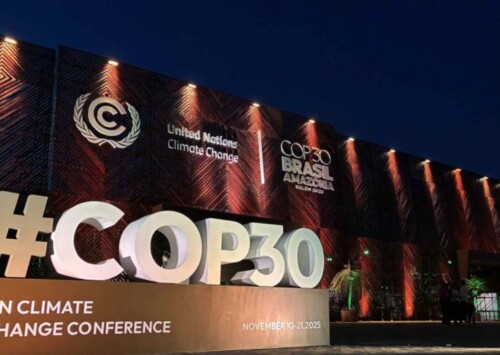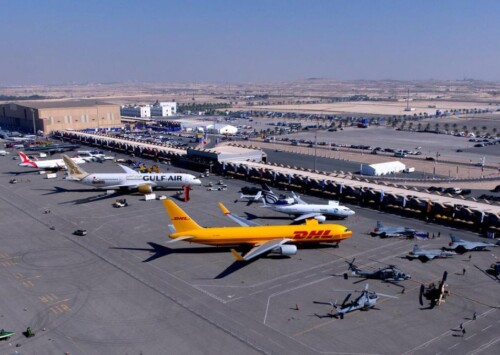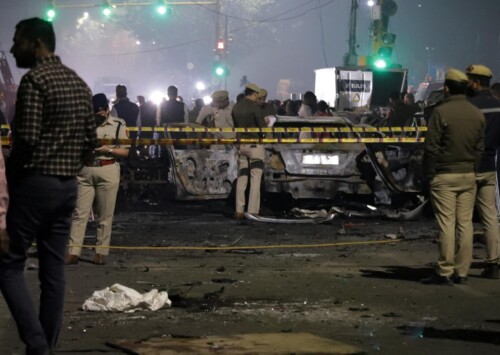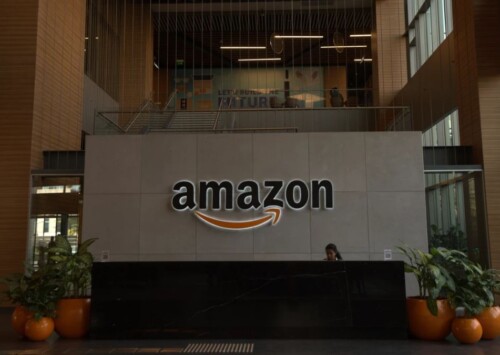Rockefeller Foundation races against time to minimise deaths due to cut in international aid
Focus on managing debt crisis, promoting school meals and equity in access to energy
Citing studies that say over 14.5 persons could die around the world due to cuts in international assistance, Rockefeller Foundation, a leading philanthropy organisation based in the United States, continues to push ahead with its agenda of finding solutions to mounting debt crisis, equitable access to energy and free school meals to counter malnutrition. These were also the focus areas for the representatives of Rockefeller Foundation at the recent Paris Peace Forum.
Raising an alarm over the dramatic cuts to Overseas Development Assistance (ODA), mainly provided by rich world to the developing countries, Rockefeller Foundation says that global leaders need to act urgently and in unison to prevent deaths of over 14.5 million persons around the world due to these cuts.
With a mission to consolidate the remaining funds available for most urgent actions in the most vulnerable countries, the Rockefeller Foundation, a leading philanthropy organisation based in the United States and that was founded in 1913 to promote well-being of humanity, has been trying to forge a consensus at various high-level meetings around the world.
The situation is dramatic as not only have various governments cut down their ODAs, but the cuts come at a time when the world is hurtling towards numerous challenges on different fronts.
According to experts of the foundation, with less than five years to go before the deadline for the world to achieve the 17 goals set under United Nations Sustainable Development Goals (UNSDGs), progress on almost all of them has faltered since the outbreak of Covid-19 pandemic and only a special a and collective effort can help redeem some hopes of at least some of the goals being met or not being missed by a wide margin as is the case currently.
They add that to meet these goals, the world needs to act in unison and with coordinated efforts to address the challenges that lie ahead. However, almost since the end of the pandemic, business and political mood across world has undergone a sea-change and instead of cooperation, the focus has been on competition and while globalisation seems to have died with the pandemic, it now appears to be a case of each unto his own.
This dramatic reversal of political mood and views of the leadership, both political and business, spells disaster for world’s ability to meet the goals and is creating huge challenges which need immediate redressal, rather than being brushed under the carpet.
The Rockefeller Foundation has set its focus on a few key areas namely mounting debt crisis for poor countries, access to free school meals to keep malnutrition in check and to address the global issue of equitable energy access.
The foundation has used every available opportunity, mainly in multilateral meetings or fora to raise the issues and try to forge a consensus or at least a core group of like-minded organisations in order to push ahead on these critical items. One such recent occasion was at the 8th Paris Peace Forum, held recently in Paris where Rockefeller Foundation was a key participant.

Eric Pelofsky
“We are here at Paris Peace Forum because it has always been a really effective and also really efficient place to do work on international issues, and particularly international cooperation. It brings together an incredible array of civil society, governments and philanthropies and private sector, and that is actually rare that you get all of those together, and across many different topics, and at very senior levels. So we have always found it a very effective place to do work. Our work this time has been focussed on debt and the debt crisis, school meals, energy access, and the Global Energy Alliance, something that the Rockefeller Foundation helped launch, and international cooperation,’’ Eric Pelofsky, Vice President and Senior Advisor to the President, Global Economic Recovery, tells Media India Group.
“On these four topics, we have been very busy. We have had several conversations about school meals, where our goal was to sort of coalesce a bunch of disparate efforts and see whether we could actually make progress together, as opposed to everybody making incremental progress themselves. I think the conversations we have had suggest that there are ways to collaborate and deliver more. And God knows, in this environment, we need to do that, because Overseas Development Assistance (ODA) and other bilateral resources are going down rapidly,’’ Pelofsky adds.
Working alongside Pelofsky at the Paris Peace Forum was Mehrdad Ehsani, who is Vice President, Food Initiative, Rockefeller Foundation and is based in the foundation’s office at Nairobi in Kenya, focussed on rolling out school meals programmes across Africa.

Mehrdad
“What we found is, for a good value proposition for school meals, you have to design it in a way for multi-sectoral outcomes, to get a better return on investment for countries. Because, let us face it, it is quite expensive. It is more than just about filling up kids’ bellies, it is about making sure that kids are coming to school, staying in school, because hungry children don’t learn. So helping them to have better education outcomes, building human capital, as part of the economic transformation of the country, creating healthy consumption patterns, as the burden of diet-related diseases is becoming quite significant for governments. And of course, I am on the food team in the Rockefeller Foundation, so we are very interested in how the demand side of institutional procurements can drive food system transformation,’’ Mehrdad tells Media India Group.
“Creating inclusive opportunities for local communities to be involved in farmers accessing markets is important. And I think looking at how we can catalyse regenerative practises is quite critical. I am based in Nairobi, and our soils in Africa, generally, are heavily mined, so you can’t just do business as usual. You have to regenerate the soils if you want to have productive systems in our society. So that’s very much within our thinking. And that allows also for access to finance, climate finance, nature-based finance. There are other kinds of innovative finance mechanisms that can be capably linked to these multiple agendas,’’ adds Mehrdad.
On the issue of assistance from rich countries, Pelofskys admits that while the cuts have been brutal, the assistance has not totally dried out and it gives some leeway for most urgent needs to be met.
“The numbers are bad and they are very dramatic cuts. That said, it is not zero. Because it matters that it is not zero, because there is real money still out there. There is a huge shortfall, so I think you are going to see a couple of different ways in which it is managed. There is going to be, obviously, dramatic cost cutting, and there are going to be some things that just people don’t do. And I think the banks will have to step up considerably. But I don’t think it has fully been digested as to what is going to have to happen. Because the magnitude of it is so large that people need more time to figure out what that really means,’’ he adds.
With clock on the UNSDGs and numerous other global crises running rapidly towards an assortment of deadlines, Pelofsky says that for him it is crucial to remain optimistic and keep working towards arriving at that elusive consensus in order to minimise the deaths being caused every day.










